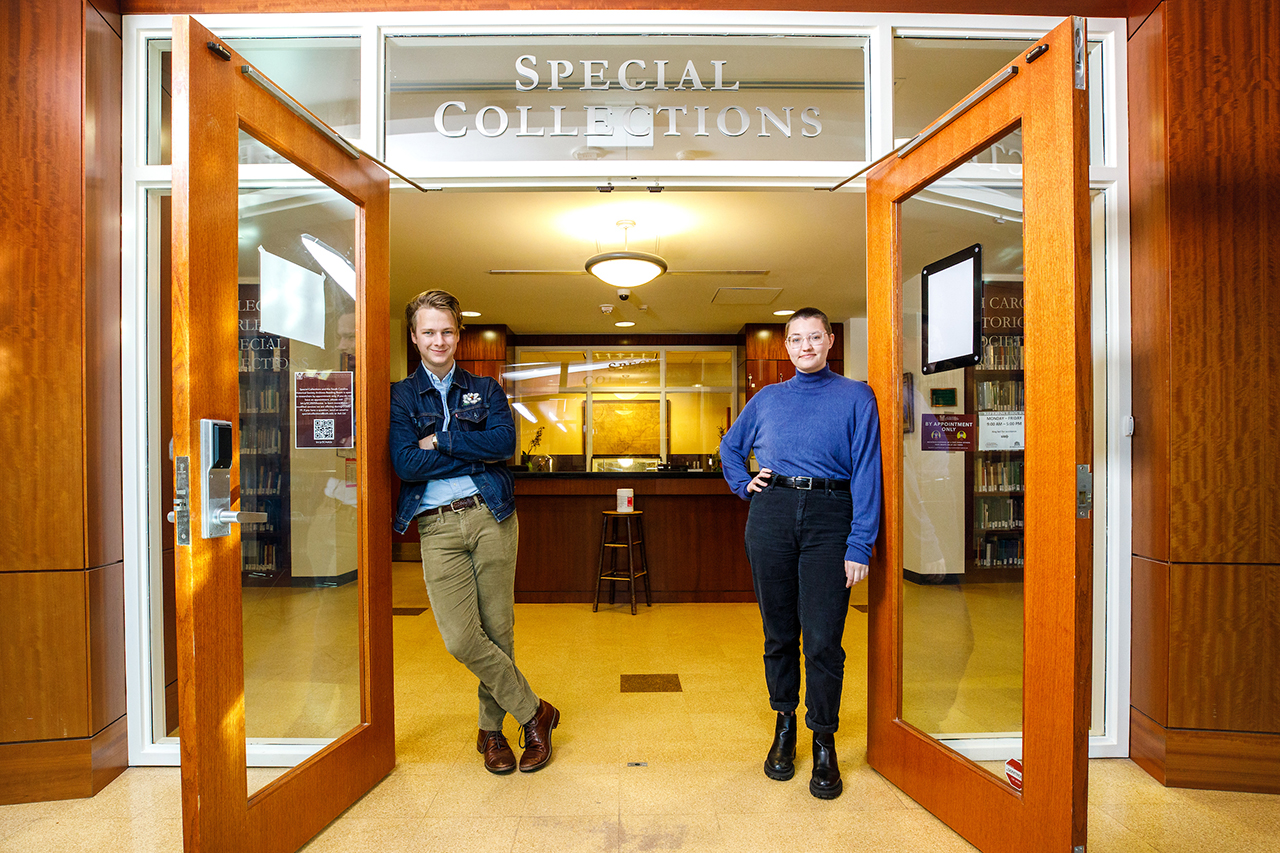Religious Studies Major
Pursue a major in religious studies and increase your global awareness.
This is the academic study of religion. You will examine practices and perspectives from a scholar's point of view and develop your cultural awareness. Religion impacts our ideas, institutions, art and laws. Gain skills in oral and written communication, research and critical thinking. Explore a career in medicine, education, counseling and journalism.
Why study religious studies at the College of Charleston?
What will I learn?
You'll develop important communication skills such as critical reading and writing. You'll learn how to conduct research and share it with an audience. You'll gain cultural awareness and critical thinking skills. Gain an understanding of the history surrounding various religions and their roles in society. You'll receive a solid foundation for any future career or graduate studies.
View Curriculum: Religious Studies
Program Highlights
-
Hands-On Learning
You'll gain hands-on experience in and out of the classroom. You may participate in class field trips and take individual site visits. You'll join student-only discussion sessions with guest scholars and alumni. You'll receive support and mentoring from faculty. You can complete an individual research project and present your work at regional conferences.
Bachelor's Essay
You'll have the option to write a Bachelor's Essay. This project takes two semesters. You'll work one-on-one with a faculty advisor to develop a high-level research project. The results are often transformative. Previous projects have led to:
Internship Opportunities- academic publications.
- business plans.
- future careers.
- grad school application material.
- world-changing ideas.
Internships allow students to network and make connections that may lead to full-time paid positions. You may work with organizations such as:
- churches.
- synagogues.
- hospitals.
- non-profit organizations.
- hospice and social outreach programs.
- museums.
- historical sites.
-
Study Abroad
We co-sponsor a number of study abroad programs. Studying abroad helps you develop academically, culturally and personally. Past programs featured experiences like:
- traveling to Tel Aviv and Jerusalem to visit sacred sites and an eco-kibbutz.
- examining the effects of climate change on Buddhist and Muslim communities in Ladakh, India.
- studying the impact of globalization on Tibetan refugees in Dharamsala, India.
- learning about religion and tourism management in China.
-
Location
There's no better place to study religion than the Holy City. Charleston is called the Holy City because of its history of religious diversity, tolerance and abundant places of worship. In fact, Charleston has more than 400 places of worship. With so many different faiths represented, there are plenty of opportunities for you to gain real-world experiences while you study.
Careers & Outcomes
- law.
- education.
- healthcare.
- advocacy.
- medicine.
- business.
- journalism.
- government and non-profit jobs.
- spiritual leadership.


Life in the Holy City
Allen Duggar and A.J. Williamson began digging into the religious history of the College of Charleston. They found a story bigger than they could have imagined.
Read More